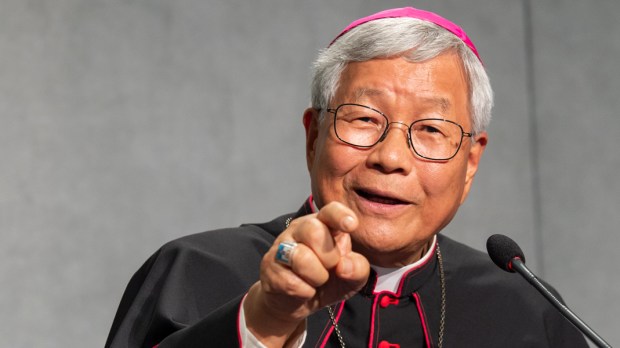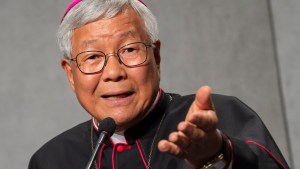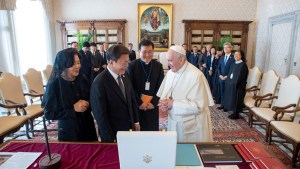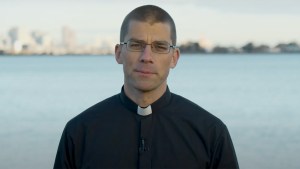At 72 years of age, “Archbishop You,” as he is often called in Rome, is today the man within the Roman Curia in charge of the 410,000 priests, 46,000 deacons and nearly 7,000 seminaries active in the world. Recognizable by his big smile and a particular sense of humor, the South Korean is part of this “young” generation of leaders—along with Cardinals Grech, Semeraro, and the future Cardinal Roche—who are close to the pope and who will play a role in the coming years.
Arriving in Rome in 2021, he is originally from Nonsan, a small town near Daejeon in central South Korea, in a region known for its economic and scientific dynamism. Born into a Catholic family, he joined the seminary at the Catholic University of Korea in Seoul at the age of 18.
His bishop sent him to Rome in 1976 to study at the Lateran University. He was ordained there in 1979. The young priest continued his studies and obtained his doctorate in dogmatic theology in 1983.
He then returned to South Korea after seven years in the Eternal City, opened to the universality of the Church and now speaking Italian. He then worked as a priest at the cathedral of Daejeon and was appointed director of the diocese’s Catholic education center in 1984, and then the pastoral director of the diocese in 1989. In 1994, he became a spiritual director and professor at the Catholic University of Daejeon, and then president of the university in 1998.
A dynamic bishop
In 2003, he was appointed by Pope John Paul II to become coadjutor bishop of his home diocese, and became its bishop in 2005 upon the retirement of his predecessor. His diocese is famous for being the diocese of most of the martyrs of Korea canonized by John Paul II in 1984, including the first Korean priest, St. Andrew Kim Taegon. Archbishop You was particularly active in promoting these local saints’ legacy of heroic evangelization.
As a bishop, he stood out for his commitment to the Korean Caritas, his interest in social and migrant issues, and youth ministry. A former member of the Focolare, he participated in the 2013 WYD in Brazil and then organized the Asian Youth Days in his diocese in 2014.
In 2020, he was chosen by his peers to be secretary of the Korean bishops’ conference.
The man who wants to take the Pope to North Korea
His commitment to reconciliation with North Korea has left its mark and made him known beyond the borders of his country. As a bishop, he traveled beyond the 38th parallel four times to accompany humanitarian convoys.
In 2021, he made a big splash when he said that Pope Francis was planning to visit North Korea: this is in fact a great project that the archbishop has kept present in his prayers and statements since 2019.
The South Korean model
The Pope’s choice to bring him to Rome to head the Dicastery for the Clergy is not surprising: Rome sees the great dynamism of the Catholic Church in Korea. South Korea has seen the number of Catholics grow in recent decades, reaching 11% of the population.
This growth is based on the alternative the Catholic Church offers to a society that is “the victim of materialism, envy, selfish competition,” said Archbishop Lazarus You to Asianews in 2020. In this society where atheism is also on the rise, “community life is needed, with mutual love as a new commandment,” he said.
The new impetus given by Archbishop You as head of the Dicastery for the Clergy is too recent to be measured at this time. However, he has been particularly appreciated by several Swiss and French bishops who have met with him on ad limina visits in recent months.
Committed to fighting the decline in vocations
Interviewed on June 24 by Vatican News, he said he was “very concerned” about the decline in priestly vocations that is taking place in “almost every country.” For him, the strong vocations observed in South Korea are above all a gift that God has given them and continues to give them “through our martyrs.”
It is therefore above all a matter of giving “credible testimonies” to young people who want to become priests, insisted the Korean future cardinal. He also insisted on the importance of forming “solid and mature priests,” especially to eradicate the evil of abuse.




